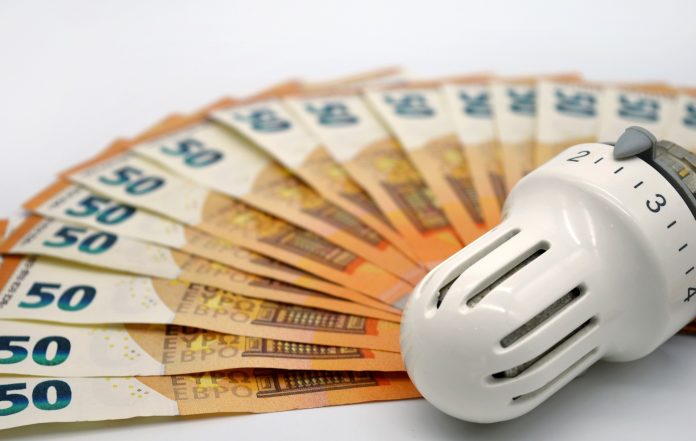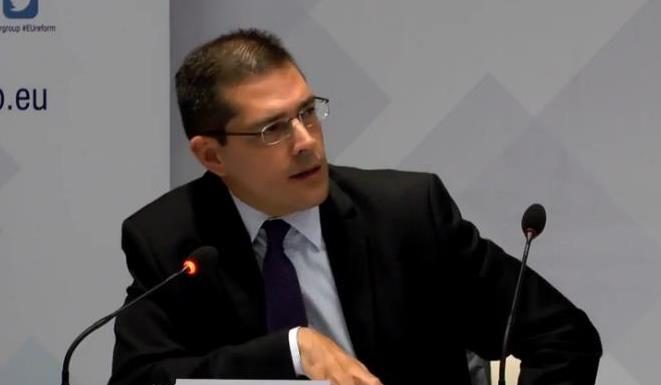In this article for Brussels Report, former Irish Europe Minister Dick Roche takes a closer look at the EU’s attempts to open up Bulgaria’s energy sector in a bid to support greater consumer choice.
Optimism was again in the air on 1st January 2007 when Bulgaria and Romania joined the European Union. While the challenges facing the two new Member States were not to be underestimated those who had been involved in the long discussions that led to the admission of the two countries joining the EU, this writer included felt confident that the will existed to overcome the remaining challenges. Recent events have put a dent in that optimism, a point demonstrated by pushback on the issue of Euro and Schengen area membership for both countries.
When Bulgaria and Romania entered the EU there was one nagging doubt in my mind. From experience as a lecturer in public administration and later in politics I was acutely aware that in all political cultures administrative and political reform is infinitely easier to propose than to implement. It is a fact of political life that resistance to reform from the ‘old guard’ is inevitable. Administrators who fervently believe that their way of doing things is best can be expected to push back. All too often when other events deflect political attention away from reform proposals the ‘old guard’ who control the levers put the brakes on and not infrequently bring the process to a juddering halt. Reforms if not killed off shrivel up entirely and become a shadow. Implementation is the Achilles heel of reform.
Historically the Bulgarian energy market has been dominated by State-owned companies. That largely remains the case today.
Bulgarian Energy Holding (BEH) EAD, a vertically integrated energy company wholly owned by the Bulgarian Ministry for Energy is the dominant player in Bulgaria’s gas and electricity markets. The BEH portfolio includes Bulgaria’s main electricity generating stations, the country’s largest lignite coal mining enterprise, and, critically, the transmission grids for electricity and natural gas access which are vital if competition in the energy is to become a reality.
BEH, as it stands today, is the successor of a state-owned company (Neft I Gas) which was established in 1973. The company was restructured in 1993 and reorganised into its current form in 2008.
In theory, the Bulgarian energy market has been liberalised since 2007. Since Bulgaria joined the EU consumers are supposed to be free to choose their supplier in accordance with EU legislation. Consumer choice and more competition were supposed to be ‘part of the EU package’.
Grim Reading
A 2019 OECD report concluded that twelve years after Bulgaria’s EU accession Bulgaria’s gas and electricity markets remain “rather concentrated” with a “lack (of) genuine competition mainly due to entry barriers”. The report’s analysis of state-owned enterprise operations in Bulgaria’s energy sector makes grim reading.
The report cites a World Bank conclusion that while the regulated segment of Bulgaria’s energy markets has been “shrinking substantially” with the arrival of private operators, “market initiatives continue to be weak for household customers”.
It flags concerns relating to “potential subsidies and abuse of dominant market position” noting that Bulgaria’s Commission on the Protection of Competition (CPC) does not investigate state subsidy complaints seeing responsibility for such complaints as vested in the European Commission”.
The report concludes that amendments to Bulgarian legislation made in 2018 did little to alleviate these concerns.
It also points out that a renewable energy support scheme introduced in the amending legislation had been adjudicated by the EU Commission as “unlawful”. The allocation of state aid under the new scheme had not been previously notified to the EC”.
All of this puts something of a question mark about how the Bulgarian Ministry of Energy, which was established as a separate entity in 2014 with the objective of leading “a transparent energy policy to protect the state and the public interest” has been fulfilling that objective.
EU single market’s border with Turkey has been run by the mob for many years & drugs, foods etc entered freely, Bulgaria's government says.
Funny admission in the context of Brexit & N.Ireland: “everybody knew but nobody wanted to find out”@liliebayer https://t.co/DLL7yzGfw2— Bojan Pancevski (@bopanc) July 11, 2022
False dawn
In Bulgaria’s gas sector, where private companies have become more active, there have been some positive developments. The arrival of new private players created competition on prices, gave consumers more choices, and delivered other tangible economic benefits.
These changes also produced positive environmental benefits. Bulgarian households and businesses have been given access to a cleaner energy mix produced tangible improvements in air quality in Bulgarian cities and towns.
Hopes for a fully open and competitive gas market have proven to be a false dawn. From the outset, the progress by private operators has been b latently resisted by the state sector in policies that run counter to EU principles.
Under successive administrations, the authorities have tolerated wilfully destructive policies with regard to the gas supply sector, policies that openly favour state-operated entities. Hidden subsidies which effectively force private sector operators to cross-subsidise public sector entities have been facilitated. Efforts to roll out connectivity have been blatantly frustrated. These regressive policies, in addition to suppressing competition, have pushed Bulgarian consumers towards an environmentally ‘dirty’ electrical sector and to other environmentally negative options.
The BEH case and another false dawn
Matters appeared to have come to a head in a landmark decision in 2018 when the EU Commission fined the state-owned Bulgarian Energy Holding (BEH) and its subsidiaries over €77 million for blocking competitors’ access to key gas infrastructure in Bulgaria, a breach of EU antitrust rules.
Vestager: We would have preferred to close the Bulgaria gas case without a fine https://t.co/1belED5iQh
— EURACTIV (@EURACTIV) December 17, 2018
At the time, Commissioner Vestager made the point that Bulgarian consumers had been denied a choice of suppliers because of the policies that the Bulgarian authorities were allowing BEH to pursue.
The Commission hoped that the judgement against BEH would “promote the development of an open and competitive energy market to the benefit of consumers in Bulgaria, in line with Energy Union objectives.” [ https://ec.europa.eu/commission/presscorner/detail/en/IP_18_6846 ]
Following the BEH case, a Gas Release Program (GRP) was introduced in 2019. The GPR imposed an obligation on Bulgargaz to release specified gas supplies by way of business-to-business auctions over a five year period from December 2019.
While the Gas Release Program was by no means a panacea for all of the problems in the Bulgarian energy market it was seen as a step forward. It seemed to secure private operators’ access to supply on a transparent and competitive basis, an important step in building competition and extending customer choice. However, the hopes for the GPR have now been dashed.
As 2022 was drawing to a close, in an extraordinary move the Bulgarian authorities decided to scrap the Gas Release Program reversing the 2019 reforms before they are fully ‘off the ground’: GRP was another false dawn.
Another Controversy
The GRP decision is not the only extraordinary development in the Bulgarian gas market that points to a wilful decision by Bulgarian authorities to jettison EU norms.
Like many other countries, the invasion of Ukraine left Bulgaria in a quandary as to where it could source future gas supplies. As one of Europe’s most heavily dependent countries on Russian gas Bulgaria was particularly impacted when that supply was ended. Significant progress was made in a short time to establish alternative gas. Agreements boosting LNG imports were made, a long discussed gas interconnector between Greece and Bulgaria was commissioned and a long-term gas agreement with Turkey was initialled.
While all of the details of the long-term agreement with Turkey are not available the details that are available again point to Bulgaria’s open predisposition to favour state-operated enterprise, to undermine its private sector, and to openly flout EU law. Such detail of the agreement as is available suggests that capacity on the pipeline will not be offered to the open market. Preferential access will be granted to Bulgargaz. Given the termination of the GRP this arrangement if final will be another hammer blow to private sector operators. It again flies in the face of European competition principles.
A Dangerous Game
Simply ignoring EU law is not a smart move for any Member State. Tearing up the rule book seldom pays. Bulgaria has already been handed a fine of €77 million. While that is on appeal further infractions of fundamental rules on competition will not win Bulgaria and friends within the EU institutions. If as many suggest is likely the Commission’s decision is upheld that very substantial fine will fall ultimately for the citizens to carry.
Heavy fines may not be the only impact. Post Brexit many in Europe have little patience for semi-detached membership. As mentioned at the outset we have already seen pushback on the issue of Euro and Schengen area membership. At a time when the European Union is facing the challenges of a war on its border, nobody will benefit from a major fight to preserve the privileged position enjoyed by a state-operated energy enterprise that should be able to stand on its own without propping up.
Dick Roche is a former Irish Minister for European Affairs and a former Minister for Environment. He served in the Irish Parliament from 1987 to 2011.
Disclaimer: www.BrusselsReport.eu will under no circumstance be held legally responsible or liable for the content of any article appearing on the website, as only the author of an article is legally responsible for that, also in accordance with the terms of use.













